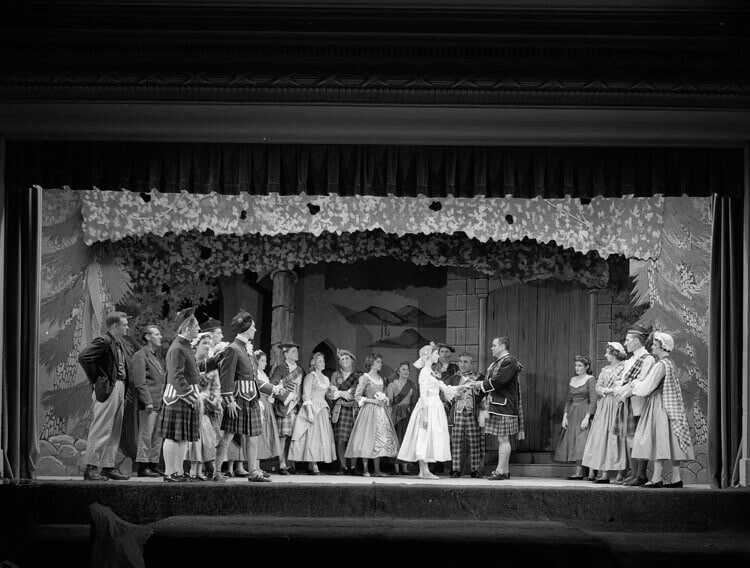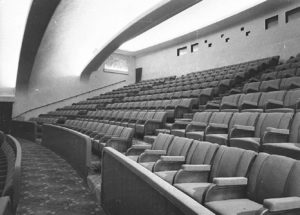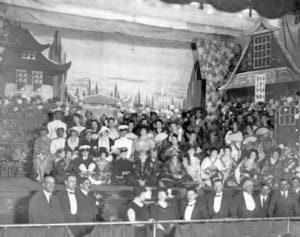What are the things to consider in a stage play? Tips for putting on a great performance
There are many elements involved in a play, and if you’re producing one you may find the experience daunting. However, putting on a play is an exciting project for you, your crew and cast, and nothing beats seeing all your hard work come to fruition on stage. However, there’s a number of things to do before you get to that moment, and it’s important not to miss anything off.
10 tips to improve your theatre productions
A lot of work goes into a play and it can be easy to overlook important details or leave items off your theatre production schedule. Here’s some of the things to consider in a stage play.
Make sure it’s a play you love and understand
Everyone involved in your production will be working on this play for weeks at least. You have to make sure that this is a play that you want to work on, and are driven to make it the best it can possibly be. If you get bored of the story you’re telling, then all the work you’re putting on won’t feel worth it.
It’s also important to ensure that you fully understand the play beyond the plot and know what will make it resonate with your audience. A play is exploring a wider story, theme or idea, and this needs to be visualised clearly throughout. If you’ve written your own script, listen to what the cast and crew think of the story – what is the overall message? What is their ‘feel’ of the play? Does it align with your own vision? This is the sort of feedback that will uncover any missteps in your play that you can fix.
It’s important to put on a play with meaning and convey it in the right way, so the overall message hits home. Without a good understanding of the story, it opens up room for plot holes and poor character development which were overlooked, leading to a play that doesn’t quite hit the mark.
Share your vision with everyone and make it clear
You probably already have a vision for your play – an initial idea of the sets, the costumes, the key moments that leave your audience on the edge of their seats. But the rest of your cast may not have the same ideas.
When introducing your play to your team, go into as much detail as possible. What’s the message? What reaction do you want from the audience? What atmosphere are you creating? Essentially, the director will be communicating their idea of your vision, not your vision itself, and the rest of the cast then presents their vision to the audience. So be clear and don’t leave anything out – just because something seems obvious to you, doesn’t mean it is to anyone else. You need to be 100% certain that everyone’s goals are aligned and you are all performing the same story.
Create a theatre production timeline
Planning and rehearsing your show will be a lot easier if you know when each stage of the production needs to be completed. This way, you’ll be able to track progress, know what’s next and ensure everyone knows what’s going on. Creating a theatre production calendar will help keep everyone on track.
For your calendar, you need to set goals and deadlines for each task in the lead up to performances, as well as after. For your theatre production plan, you’ll need to consider things like:
- When should sets be designed by?
- When does lighting design need to be confirmed?
- When will measurements be needed for costumes? And when will they need to be completed?
- Do any sounds need to be recorded before the show?
- When do ticket sales start?
Dress rehearsals and tech week should also be included in your theatre production timeline. You may want to schedule rehearsals for the more important scenes earlier in the day, sooner in your timeline, as these are the ones where actors will really need to shine, and this will give everyone involved enough time to perfect them.
To work out exactly how many rehearsal hours will be needed, start by working backwards from opening night, all the way to the first script read-through, and then see how many hours are accumulated.
Your theatre production calendar should also include contact details, roles and responsibilities, so if a crew member needs something urgently, they know who to contact. Send out your plan to all cast and crew as soon as possible, so they can see your goals in a tangible way and get a strong idea of what they’re working towards when.
Planning a stage setting for a performance
When it comes to set design, there are a few things to keep in mind. Of course, you’ll need to think about your budget and the set you can afford. When you picture your play, you may imagine a variety of intricate sets complete with special effects, but this isn’t always feasible – nor is it always needed.
Unless you’re trying to create a spectacle of a play, simplistic, minimal sets can work just as well. For example, ‘Waiting For Godot’ by Samual Beckett has only one set, which features just a bare tree in the background – you can see the set here. The overall message of the play is that nothing happens, and yet we spend our lives waiting for something to happen. The emptiness of this set reflects this ‘nothingness’ perfectly. If you feel that you don’t need much to communicate the overall message of your play, then don’t feel you have to incorporate lots of set pieces for the sake of it. Ideally, each backdrop should be suitable for a handful of settings, and ensure that characters within your story return to a location more than once.
You’ll also need to consider what the stage will look like when actors are performing. Make sure there’s collaboration between set designers and directors so that there’s enough room for blocking, movement as well as set transitions.
When designing a set for a play, you need to factor set changes in your story. Transitions need to be quick – you don’t want to spend 10 mins changing scenes. Save more drastic changes for intermission and rehearse transitions as much as possible in the lead up to performances.
Why are props important in a play? Leaving enough time for prop design
Props are important in a play as they create a more realistic scene, inspire actors’ movements and set the overall mood of the play. To bring the best out of your cast and easily tell a story, then you should ensure that they don’t go overlooked. However, finding and making props can be costly and time consuming, and how they’re used can affect the running of your play.
If you’re planning on making props, then make sure you hire people with the right skills to create authentic-looking items. Make sure you get to work on these as soon as possible so there’s enough time to spend on the details, and for fixes if something breaks. Actors can spend more time rehearsing with their props, too, rather than only during tech rehearsals.
For example, The Royal Shakespeare Company mentions that, when making severed heads for plays, it was quite a process that required covering actors’ faces in plaster. This was time consuming for both the prop team and cast.
You also want to be wary of additional requirements needed for stage performances with weapons. If you’re using a gun, even if it’s plastic or an imitation gun, then you will need to prove that it is necessary for the performance in order to legally use it. For rehearsals, under the ‘Realistic Firearm’ Act – which covers a range of weaponry for theatre -, you’ll also need to prove the necessary use of other weapons for both theatres and rehearsals.
Finding a suitable rehearsal space
You’re probably already hunting for a venue for your performance, but don’t forget about rehearsal spaces. This is where your play will come to life, so it’s something that shouldn’t be overlooked. Luckily, unlike your performing venue, your rehearsal space doesn’t have as many considerations.
The main consideration is that your rehearsal space has enough capacity for all cast and crew. Your space will need to be comfortable – you’ll be spending a lot of time here and the last thing you need is feeling frustrated over a lack of space or how cramped everything feels. Consider the small things – can your space fit enough chairs so no one has to sit on the floor? Where will bags and coats go as people arrive? Are there refreshments available? It’s little things like this that will make rehearsals easier for everyone.
Some event venues provide rehearsal space along with their main theatre space with stage – like at 20 Bedford Way, we have our Drama Studio as an ideal rehearsal space alongside our flagship theatre Logan Hall. If your venue doesn’t have a suitable space then you can also try town halls or school assembly rooms, for example. As long as there’s enough space, amenities, suitable flooring and plenty of lighting (natural, if possible), then you can use it for rehearsals.
One other aspect to consider is how everyone will get to your rehearsal space. A large group of people will be arriving here on an almost daily basis, so ideally your rehearsal space should be in an accessible location. If you choose 20 Bedford Way for putting on a performance, then our Logan Hall and breakout rooms are all based in Bloomsbury, just minutes away from Russell Square station. Bloomsbury is known for its vibrant cultural heritage with strong literary roots, making it the perfect location for putting on a stage play.
Provide notes for the actors, even during the play run
Throughout rehearsals, actors are given notes consisting of constructive feedback to help them with their performance. It’s important for this to not stop when your show hits the stage.
It’s common for things to change during the first few performances of a play, so don’t be afraid to tweak and give suggestions if you feel they are needed. Make sure the feedback you’re providing is valuable and constructive, so go into detail and provide examples where you can. Avoid saying things like ‘this section wasn’t great’ and try instead to remind them of what exactly they need to improve and what the point of the scene is. Remember, everyone needs to understand what message you’re trying to convey.
Be supportive of your cast and don’t come across too harsh – putting on a live show is stressful and tiring and not everyday is going to be your best. And, finally, do not give out notes just before a performance. This could throw actors off and make them feel more nervous about going on stage. Instead, hand them out at the end of the day, when everyone has time to digest your feedback.
How to make a theatre budget – and stick to it
When you have a budget in place, you need to decide how these funds are distributed across your play. To do this, start by defining your play to pin down what you’ll need. At a minimum, what is essential to telling your story?
While it’s important to keep your production budget as low as possible, there are a few aspects to the process of a play production that can bump up the costs:
- Licensing fees, if it’s not your own play
- Large casts
- Major transitions on stage
- Too many sets
- Large, busy scenes such as battle scenes. Fantasy and Sci-fi plays can be more expensive because of scenes like this.
- Event venue, plus the rehearsal space, if not already included
Luckily, there are ways to help curb prices when putting on a performance. There is a range of theatre funding available that can help cover costs, and you can also obtain sponsors for your play. Other ways to reduce your theatre budget includes:
- If you don’t want to write your own play, you can perform a public domain show, such as Shakespeare. Generally, anything over 100 years old is fine to perform, but always check beforehand – you can find out more about licensing here.
- Use minimal set pieces
- Look at your local fabric stores for sales or scraps to use for costumes. You can also look at second hand sites like eBay for this, and ask everyone to bring anything they already own that can be used.
- There are other things you can bring from home, such as makeup or paint.
- In terms of marketing, there are plenty of free platforms that you can use, including social media and email newsletters.
- There are also ticketing platforms that include event promotion.
We’ve compiled our marketing tips in our event promotion guide.
Sort insurance cover for your production
Although it can add to your theatre production budget, it’s always a good idea to take out insurance for your play. This is often left out of theatre plans despite being an important consideration.
There are many things that can go wrong when putting on a theatre production. Someone may injure themselves, or something may happen to your venue that prevents your play from going ahead. Having cover for this ensures that you and your crew’s income is protected. If you’re a travelling theatre company, then you may also want to consider travel insurance.
From Public Liability Insurance and Employers Liability to Building Contents Insurance and cancellation protection, there are a range of theatre insurance packages available that cover various aspects of putting on a play. Spend some time researching the different options and choose the plan that works best for you. Your venue may also include insurance within your costs so you may want to confirm this before you start searching.
Consider the importance of audience in theatre
The relationship between performers and the audience is what makes your play a success. We’ve mentioned before that, when you host a play, your story presents a message or theme for the audience to take away. It’s then the audience who carries this message outside of the theatre. In a way, the audience is then part of your performance, so it’s important to think about the relationship between theatre and audience.
When making decisions, whether that’s on lighting, music and sound effects or staging, all of this needs to be considered with the audience in mind. For example, when working on lighting design, think about the effect it will have on the audience. If it’s too bright, then you may take the audience out of the experience as they begin to notice the theatre itself and everyone around them, rather than focusing on your play.
You also want to consider the accessibility of your play to ensure that everyone can enjoy it. Make sure that your venue is accessible for everyone and that there’s enough technical support for those hard of hearing or with poor vision. All staff members should be trained to set up and recognise these devices for audience members to avoid mishaps and ensure everyone has good theatre experience.
You should also give clear flash warnings before the show, choose a ticket platform with a good user experience and make accessibility information clear on your event website.
How to produce a play with 20 Bedford Way
Putting on a theatre production is a daunting and rewarding task that can feel overwhelming at times. Our event planning team can help ensure that you create a memorable experience for your audience. Our affordable event venues are suitable for a range of plays, are in a central location and have the latest A/V technology to make your performance shine. From our Grade II Listed, 910-seater venue Logan Hall to our flexible exhibition space, Punnett Hall, we can accommodate a variety of stage productions. or Contact our event team for more information.






